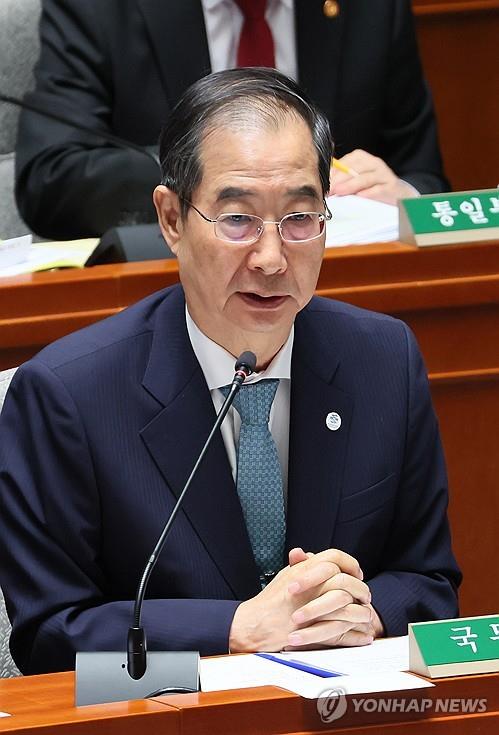- California Assembly OKs highest minimum wage in nation
- S. Korea unveils first graphic cigarette warnings
- US joins with South Korea, Japan in bid to deter North Korea
- LPGA golfer Chun In-gee finally back in action
- S. Korea won’t be top seed in final World Cup qualification round
- US men’s soccer misses 2nd straight Olympics
- US back on track in qualifying with 4-0 win over Guatemala
- High-intensity workout injuries spawn cottage industry
- CDC expands range of Zika mosquitoes into parts of Northeast
- Who knew? ‘The Walking Dead’ is helping families connect
Gov’t to consider changing term ‘contaminated water’ for describing Fukushima water release: PM
Prime Minister Han Duck-soo said Wednesday that the government would consider changing the term used to refer to the water being released from Japan’s crippled Fukushima plant into the ocean.
The government has been using the term “contaminated water” in its daily briefings on the Fukushima water release, which began last Thursday. Meanwhile, Japan has referred to it as “treated water.”
Earlier in the day, the chief of the National Federation of Fisheries Cooperatives advocated for using the term “treated water” to encourage seafood consumption. He argued that the term “contaminated water” has generated a negative public reaction, despite the fact that the water undergoes scientifically proven treatment processes.
“What is being discharged is not contaminated water, but rather contaminated water that has been treated according to scientific standards,” Han said during a parliamentary questioning session.
Han also suggested that it would be more scientifically accurate to refer to it as “contaminated water that has undergone treatment through the custom purification system ALPS,” a designation endorsed by the International Atomic Energy Agency.
Han further put forward an analogy between this terminology debate and the country’s economic challenges during the aftermath of the Asian financial crisis in 1997. At that time, the Seoul government sought a bailout from the International Monetary Fund (IMF).
“(The crisis) had nothing to do with the IMF. Instead, our currency crisis was resolved with the IMF’s support,” Han emphasized, asserting that it would be misleading to label the situation as an “IMF crisis.”












